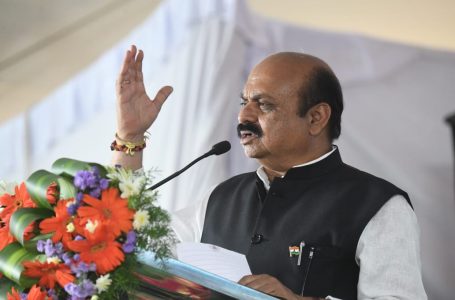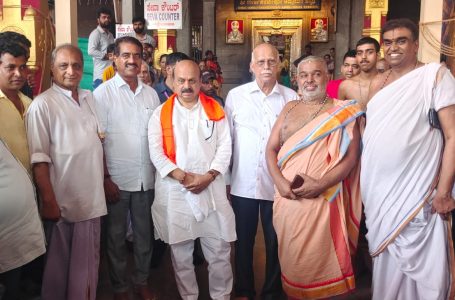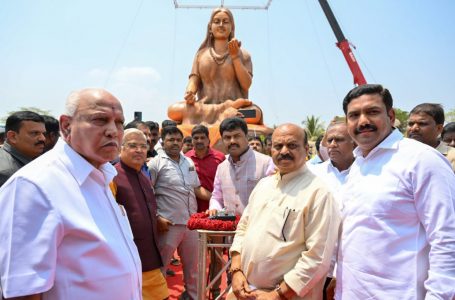Rs 500 cr for infrastructure restoration works in flood hit areas: Bommai
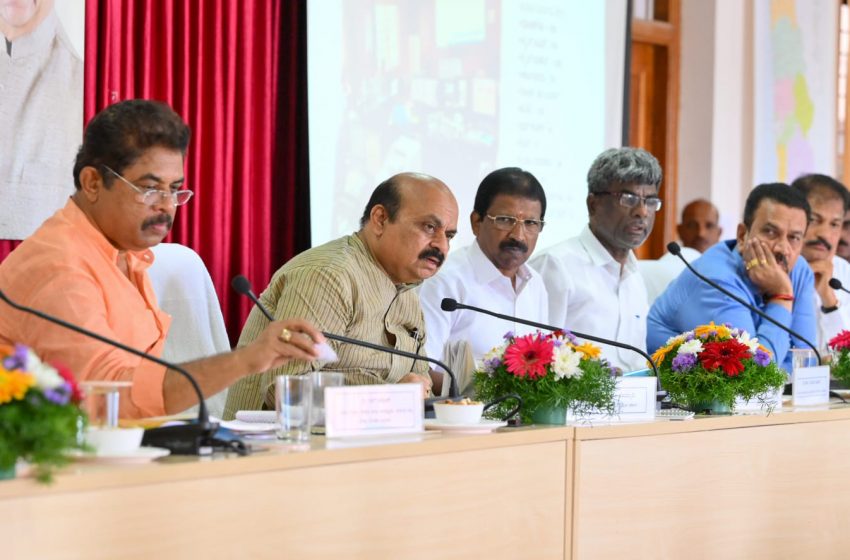
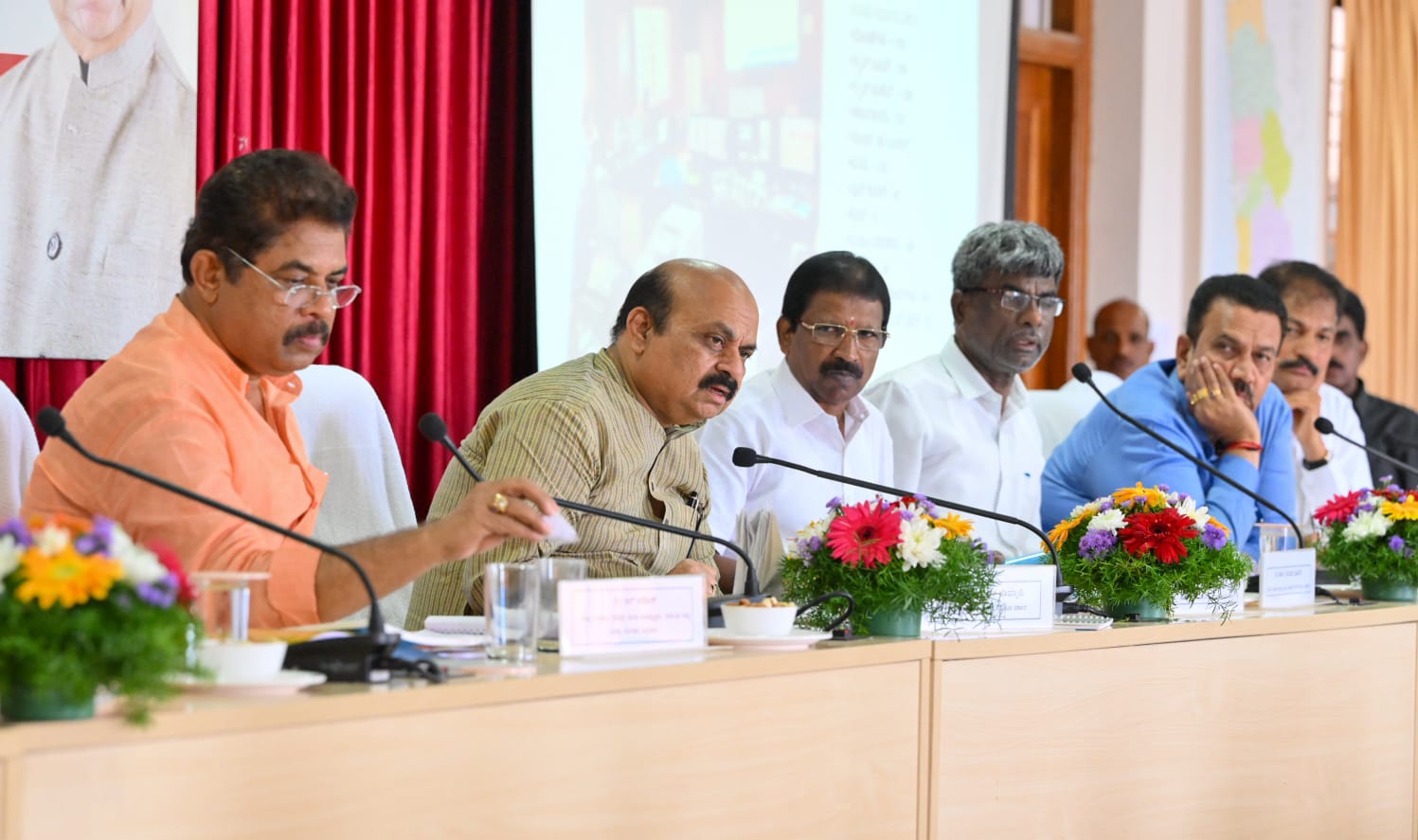
Udupi. July 13, 2022: A sum of Rs500 cr would be immediately released to take up repair and restoration of roads, bridges, power lines and other infrastructure works in the flood hit areas based on the report received from all the districts on the extent of losses suffered, Chief Minister Basavaraj Bommai said.
Addressing a media conference after chairing a meeting to review rescue and relief works in flood affected districts of Udupi, Dakshina Kannada and Uttara Kannada, Bommai said, the officials, NDRF, SDRF teams, the district administration and legislators are ready to take up relief works on a war footing.
Last year Rs1600 cr was paid within a month for farmers to compensate for their crop losses in 14 lakh hectares. This year too compensation would be released immediately.
“We will request for central assistance to take up relief works after getting reports on extent of damages from the districts,” Bommai said.
Compensation
Mysuru, Dakshina Kannada, Kodagu, Udupi and Karwar regions have received heavy rains in the month of July. So far 32 people have died, 5 have gone missing, 34 are injured, about 300 people have been shifted to safer places, 14 Care Centres have been opened, 4 NDRF and SDRF teams have been deployed for rescue and relief works. Crops in about 216 hectares have been destroyed in Dakshina Kannada district and 129 hectares in Udupi district. As for houses, 58 have been totally destroyed, 26 are heavily damaged and 1062 houses are partially damaged, Bommai said.
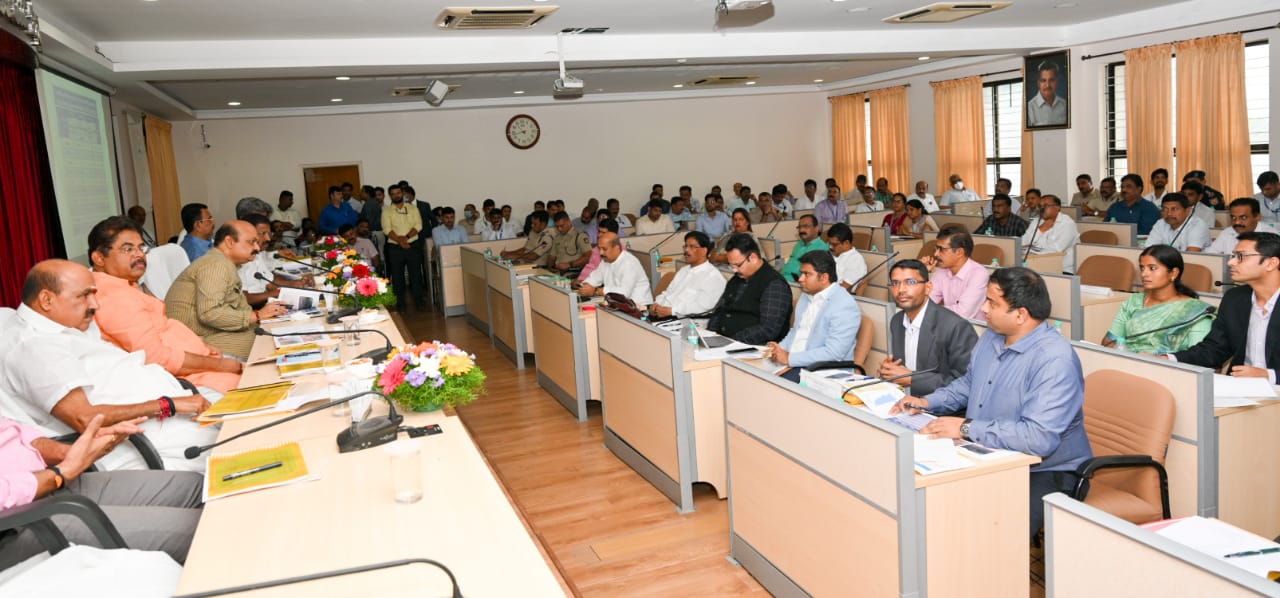
2187km Roads damaged
About 2187kms of roads including PWD and Rural roads have been damaged. Of this 727kms in Dakshina Kannada, 500kms is Uttara Kannada and 960kms in Udupi.
Power supply
About 5595 electric poles have fallen affecting the power supply in the three districts. Work is on to restore power, 422 transformers are being repaired.
Though NDRF norms prescribe Rs3200 compensation for house collapse as an immediate relief, the State government is giving Rs10,000. Damage to houses has been categorised as A, B and C according to the extent of damage. For category A, Rs5 lakh is being provided as compensation for completely destroyed houses, Rs3 lakh for B category of extensively damaged houses and Rs50,000 lakh for category C, of partially destroyed houses which are far above the sum fixed by the union government at Rs95,000 for category A and B,and Rs5000 for Category C, Bommai said.
Farm input subsidy
As for crop losses the NDRF has fixed input subsidy of Rs6800 per hectare for dry land crops, however the state government is paying Rs13,600, similarly this year too Rs13,600 would be paid as farm input subsidy per hectare. For wetland crops Rs25,000 would be paid per hectare as against the input subsidy of Rs13,500 fixed by the union government. For Horticulture crops the union government is providing input subsidy of Rs18,000,while the state government is giving Rs28,000 to help the farmers, Bommai said.
Care Centres
A solatium of Rs4 lakh is being paid by the union government for the families of those killed in natural calamities like floods. However the state government has raised it to Rs5 lakh. Those sheltered in Care Centres are being provided with nutritious meals which includes eggs, Bommai said.
Study of tremors
Referring to frequent tremors in Kodagu and coastal regions, Bommai said Geological Survey of India, Universities of Bengaluru and Mysuru have been asked to study the phenomenon and submit a report. Appropriate measures would be taken based on the study report for the safety of the people.
A team of experts from Amrita University is studying the causes for landslides in Kodagu.They have been asked to conduct similar studies in Dakshina Kannada, Udupi, Uttara Kannada and Malnad areas too. Appropriate measures would be taken after getting the report, he said.
Sea erosion
Referring to the problem of sea erosion, Bommai said, though a programme to prevent the sea erosion has been implemented with ADB funding of Rs300 cr, the results are not satisfactory. A ‘Sea Wave Breaker’ technology would be tried on an experimental basis along one km of the coast at Ullala. It would be extended to the entire coast if found successful. A plan to provide a permanent solution for sea erosion would be formulated in the next 2-3 months, Bommai said.


